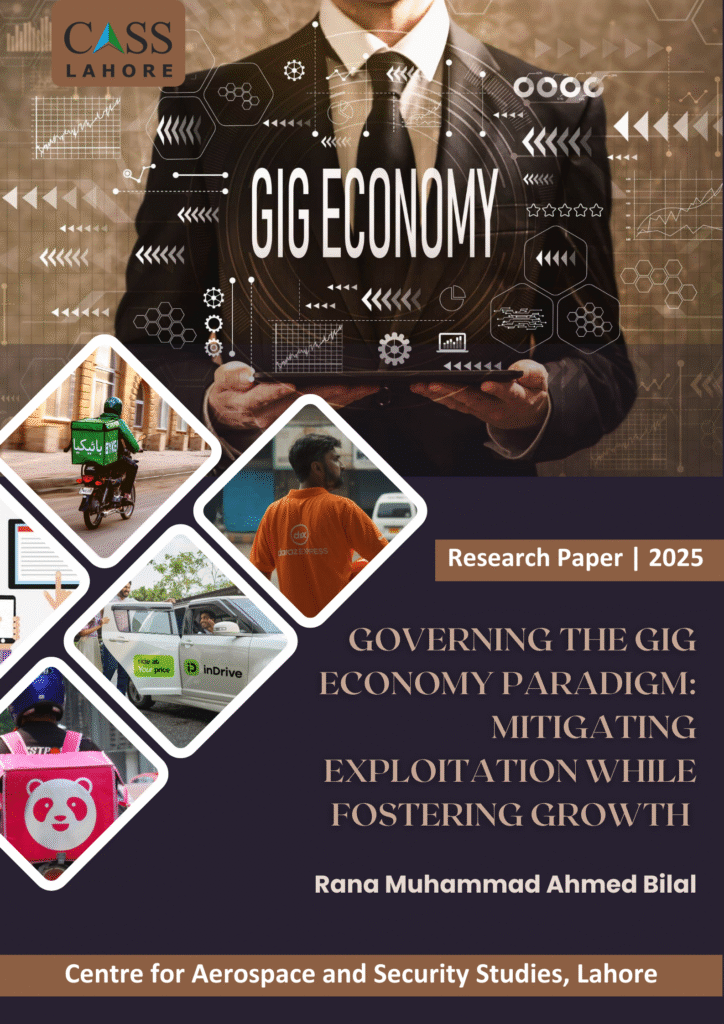GOVERNING THE GIG ECONOMY PARADIGM: MITIGATING EXPLOITATION WHILE FOSTERING GROWTH

ABSTRACT
The unprecedented rise of the gig economy has transformed the way traditional labour markets operate, promising flexible work opportunities while new governance challenges emerge. This paper analyses the gig economy paradigm, examining the precarious conditions of the new labour arrangement, the absence of social protections, the shift in economic risk, and the contentious classification of gig workers as independent contractors rather than employees. The paper explores the inadequacies of existing labour laws in multiple regions in safeguarding platform workers’ rights. Through a comparative analysis, this study highlights the responses of companies to regulatory efforts, and how the responses influence the structure of the gig economy in Pakistan. It also provides insights into the critical role of the platform economy as an employment source amid economic volatility. The paper proposes a governance model aimed at reducing parity, ensuring fair compensation, and providing essential protections while fostering sustainable growth within the gig economy. This framework suggests policy interventions such as clear worker classification, social security inclusion, and minimum wage indexation, underscoring the importance of balancing economic development with workers’ rights in a rapidly evolving labour landscape.

Rana Muhammad Ahmed Bilal
Research Assistant
CASS LAhore

The Centre for Aerospace & Security Studies (CASS) was established in July 2021 to inform policymakers and the public about issues related to aerospace and security from an independent, non-partisan and future-centric analytical lens.
CASS Newsletter
- Home
- About Us
- Research Domains
- Publications
- Events
- Gallery
- Contact Us
@2021 - All Right Reserved. Designed and Developed by PenciDesign




